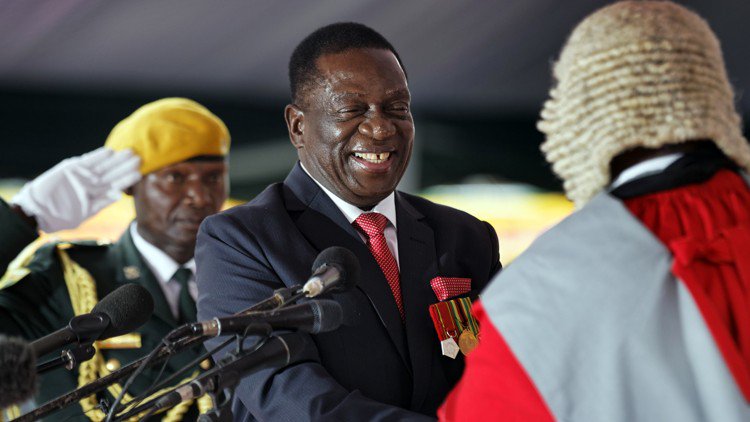By Farai Chirimumimba
The world is used to stare in wonder, yes transfixed at the jaw-dropping Zimbabwe’s Majestic Victoria Falls, the storm that thunders.
One of the seven wonders of the world. The small land-locked country’s spectacular Zambezi river gorge and beautiful country side scenery has stunned the world and may continue to if one adds that Zimbabwe is home to the big 5, elephant, buffalo, lion, leopard and cheetah.
Its economy, however, is not one of the seven wonders of the world yet a wonder in its own right: on current forecasts, it will finish the year with the slowest average growth rate in recent years in Southern Africa— behind even incessant cyclone and earthquake-stricken Mozambique situation is a cause of deep anxiety not only to Zimbabweans but to their neighbours and friends.
On April 18th Zimbabwe will celebrate the 40th anniversary of its independence.
But the festivities will be muted by the unprecedented times brought about by COVID-19 pandemic induced nationwide lock-down. However, citizens’ frustration with the country’s performance has been dark and wonder especially for a country not at war. Moreso for a country that is parroting Vision 2030 which expresses its aspiration to upper-middle-income status with a per capita income of US$3 500.
The Zimbabwean economy should by rights be booming (COVID-19 not an excuse). The country shares a border with South Africa, the Africa’s biggest market, with which it also shares some languages.
It is on the cargo route that links South Africa to the rest of the continent and has almost all the minerals found in the world and has a spacious underground fuel depot in Harare which is the 3rd largest in the world, with a potential to be a distribution hub to neighbouring countries and beyond.
Zimbabwe’s Tobacco is famed as the “golden leaf and the world’s biggest sales floors are in Harare (Boka Tobacco Auction Floors).
President Emmerson Mnangagwa administration is rocking Harare with upheaval and instability as the country is highly polarised and generally politically unstable. It has also had its fair share of the toxic ethnic tensions that have riven other African nations.
Zimbabwe has other reasons for its plodding growth of late. Agriculture and mining that employs millions Zimbabwean, have dipped with the world economy.
And the market for gold and platinum, its main export goods, has been rockier than for other commodities. However, the country’s economy was stagnant long before the credit crunch.
In real terms, Zimbabweans are no richer today than they were in the early 1980s. And most of the country’s enduring problems, like its public finances, are home-made.
Zimbabwe has run fiscal deficits literally year in year out since independence. Few people pay taxes: the middle class is small, the informal economy big, and enforcement chilled-out. Only a fraction of the country’s few registered firms are thought to contribute. The government has steadily dished out waivers to favoured industries: tourism players can import duty free service vehicles.
Lacking sufficient revenue, Zimbabwe has financed public spending by borrowing. Years of accumulated deficits, a bank bail-out in 1990s, and punishing interest rates have swollen the foreign debt to a Greek-style to over100% of GDP. Servicing the burden now accounts for over triple the budget.
The government has further ruined a bountiful economy by unwise intervention. Its incessant borrowing and love for imports have cut local firms out of the supply chain. That has limited job growth, forcing many of the young into cash barons and jobs such as hawking handcrafts on the streets.
“Money goes where the money is, and the rest of us stay poor,” says Tanatswa Mandizha, who supplies farm produce at Jambanja Market, Seke, Chitungwiza ( about 35 km South of Harare).
The private sector has also been shackled by bureaucracy. Filing taxes is a hassle and requires several separate steps twice as long as in Rwanda. Amon Chawanda, who runs an ICT-accessories shop, pays an accountant US$100 to do it. Importing his electronic gadgets and hardware can take a whole day at the border. Manufacturers complain about electricity, which takes three months to get connected.
Emmerson Mnangagwa, who became president in 2017, is cautiously trying
to broaden taxation. Despite furious complaints, he extended a 2% electronic transfer tax in 2018 to various wire transfers including the widely used mobile money transfer. The IMF and World Bank may require the government to end some quasi expenditure, which jointly reduce exposure to a minimum.
There are tentative signs that if things are done right all the problems that seem insurmountable may be over come. Most of the challenges facing the country only require a political will for example arresting corrupt elements and dismantling cartels within the energy and grain sectors. Otherwise as it stands the country will need a political makeover to improve its policies.






